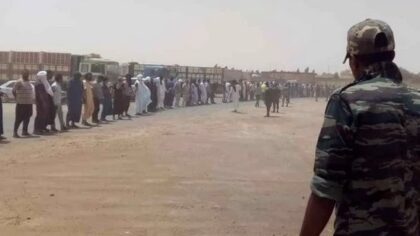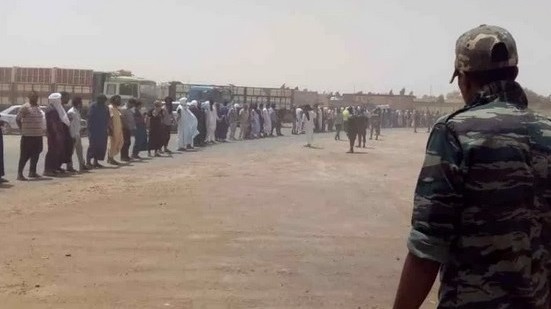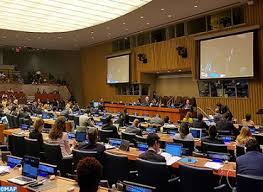 The Tindouf camps are in turmoil despite the coronavirus induced confinement. This time, it was the tradesmen operating inside these camps who took to the streets, accusing the Polisario leaders of having “methodically killed their subsistence activity”.
The Tindouf camps are in turmoil despite the coronavirus induced confinement. This time, it was the tradesmen operating inside these camps who took to the streets, accusing the Polisario leaders of having “methodically killed their subsistence activity”.
Thursday, for the second consecutive day, hundreds of Sahrawi tradesmen have organized a sit-in, which they describe as peaceful, in front of the offices of the head of the Polisario, Brahim Ghali, in Rabouni.
According to a press release they issued, the protesters claim to be subject not to “a health confinement imposed on the Tindouf camps, but to an embargo, or even collective imprisonment, under the pretext of avoiding the spread of the coronavirus”, even if the Algerian regime persists in denying the existence of cases of contamination in the camps.
Denouncing the perpetual lies and other unfulfilled promises, the Sahrawi traders claim to have gone directly to the offices where Brahim Ghali is supposed to be confined – while in reality he has been barricaded for several months in his luxurious villa in Tindouf- to assure him that their “protest movement will not stop, as long as their demands have not been met.”
They even promised an escalation, through popular demonstrations in the days to come, in case the Polisario leaders remain walled behind their silence.
There is however another reason behind this new outcry in the camps by angry protesters.
Other tradesmen, serving as figureheads managing the affairs of the Polisario leaders, are not affected by the crisis, while the small traders in Tindouf were forced to close their shops for lack of local customers whose purchasing power dropped.
Actually, while the big tradesmen are authorized to transport tons of cargoes of diverted international humanitarian aid across the desert, the small grocers in the camps have been condemned to suffer from the sanitary confinement, used as well to muzzle the many dissident voices.
The Sahrawi tradesmen accuse the Polisario businessmen of having “methodically killed their subsistence activity, which has had negative, not to say dramatic, repercussions on (their) living conditions”.
The protesters explain that if the inhabitants of the camps can no longer be guaranteed a minimum means of subsistence, the “sine qua non condition of their presence in the camps” is no longer justified, a threat that heralds a storm in the Polisario-controlled camps.



